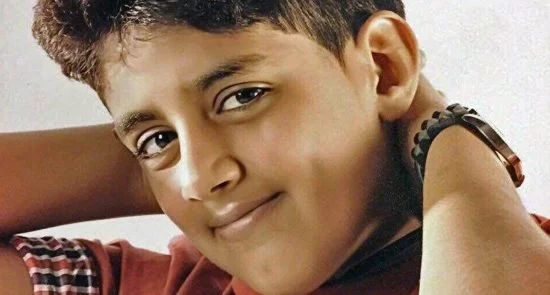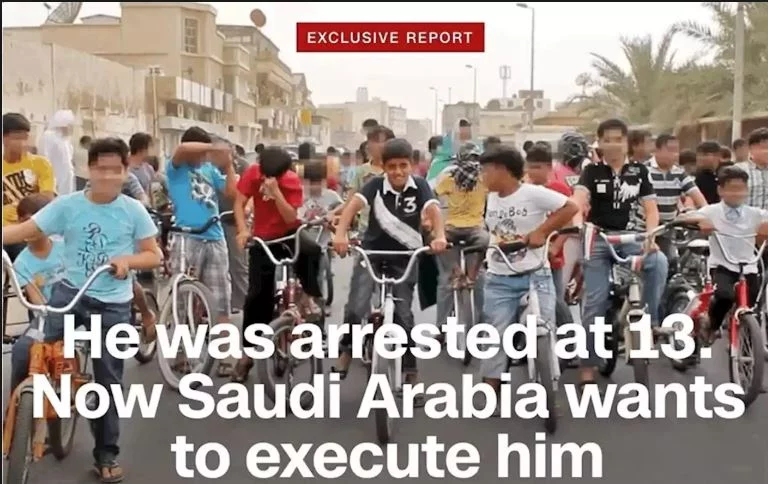Asia June 8, 2019
Short Link:A 13-Year-old Boy Gonna be Executed in Saudi Arabia
Murtaja Qureirisat at the age of 18, is facing the death penalty after being held for almost four years in pre-trial detention, CNN has learned.
Ariana News Agency-
The 10-year-old Murtaja Qureiris is about to lead the group of around 30 children. In video footage obtained by CNN, he is wearing rolled up denim jeans and black flip-flops on his feet, and grinning at the camera recording the event. It may look like a regular bike ride, but the group is staging a protest.
Moments after they set off, Qureiris gets lost in the sea of boys, struggling to keep up as he lifts a megaphone and presses it against his lips. “The people demand human rights!” he shouts.
As a boy, Qureiris participated in demonstrations like this bike ride, expressions of dissent in Saudi Arabia’s Eastern Province during the 2011 Arab Spring.
Three years after he was filmed taking part in the bike protest, Saudi authorities arrested Qureiris, then just 13 years old. He was traveling with his family to Bahrain when he was detained by Saudi border authorities on the King Fahd causeway that connects the two countries.
At the time, he was considered by lawyers and activists to be the youngest known political prisoner in Saudi Arabia.
Now, at the age of 18, Qureiris is facing the death penalty after being held for almost four years in pre-trial detention, CNN has learned.
In April, Saudi Arabia announced it had executed 37 men who, according to rights group Reprieve, were mostly from the kingdom’s Shia minority. The country has one of the highest rates of execution in the world, and has frequently been criticized by rights groups for executing people who were minors at the time of the commission of crimes.
Qureiris was 10 years old when he committed at least one of those alleged crimes in his charge sheet, CNN has learned. He was charged with accompanying his activist brother, Ali Qureris, on a motorcycle ride to a police station in the eastern Saudi city of Awamiya, where Ali allegedly threw Molotov cocktails at the facility.
The age of criminal responsibility in Saudi Arabia is unclear, but in 2006 the kingdom told the Committee on the Rights of the Child that it had raised it to 12, according to Human Rights Watch.
Saudi Arabia has also previously told the United Nations that it does not impose the death penalty on prisoners convicted of crimes before the age of criminal responsibility.
Qureiris is currently being tried at a terror court, where the prosecution has accused him of belonging to “an extremist terror group.” He faces other charges ranging from violence allegedly committed during protests – including helping to construct Molotov cocktails — to shooting at security forces and marching at his brother’s 2011 funeral.
Qureiris has denied the charges and said that the confessions, which the prosecution has largely relied on, were obtained under duress, CNN has learned.
Saudi Arabia has not responded to CNN’s request for comment on his case.











